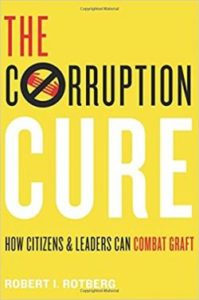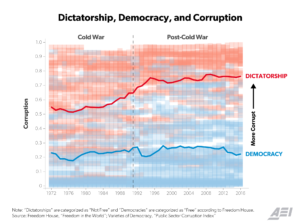 Does the arrest of the son of Angola’s former president in a $1.5bn corruption case signal the end of kleptocratic rule? Not necessarily, says a leading analyst.
Does the arrest of the son of Angola’s former president in a $1.5bn corruption case signal the end of kleptocratic rule? Not necessarily, says a leading analyst.
In the hands of an authoritarian leader, anticorruption efforts more often serve as tools for consolidating power and managing regime perceptions at home and abroad, notes Clay R. Fuller, a Jeane Kirkpatrick fellow at the American Enterprise Institute. If bribery and graft are cleaned up in such an anticorruption campaign, it is merely coincidental in light of the original sin: the monopolization of political power in an authoritarian system. Corruption is woven into the institutional fabric of all authoritarian regimes, he writes for Power 3.0, the blog of the NED’s International Forum for Democratic Studies:
There has been a lot of recent scholarship and reporting on the subject of anticorruption campaigns as a power-consolidation technique. Unfortunately, there also has been an equal amount of reporting on how these “clean-ups” are delivering—even worthy of praise from media elites and increased investment from Western businesses. But beware: this is just one of many ways that modern authoritarians project their power. RTWT
 A bipartisan group of U.S. Senators has introduced the Venezuela Humanitarian Relief, Reconstruction, and Rule of Law Act of 2018, a comprehensive bill that will expand humanitarian relief and increase economic, political and diplomatic pressure on the Venezuelan government in order to support efforts to restore democracy and prosperity, and combat kleptocracy.
A bipartisan group of U.S. Senators has introduced the Venezuela Humanitarian Relief, Reconstruction, and Rule of Law Act of 2018, a comprehensive bill that will expand humanitarian relief and increase economic, political and diplomatic pressure on the Venezuelan government in order to support efforts to restore democracy and prosperity, and combat kleptocracy.







